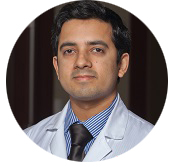Tackling the Training Transition: General to Interventional Cardiology Fellowship
One fellow shares five key steps to successfully moving between programs, even if staying at the same institution.

At some point in the not too distant past, you shook some hands, signed a contract, and received congratulations—you’re going to train in interventional cardiology! If you’re like me, you’re probably excited but also possibly anxious and unsure. This is something we have worked hard at achieving for so long, yet we still have to finish up our general training and make the most of the present while planning for the future.
Whether you are remaining at the same institution next year or moving elsewhere, the transition from cardiology trainee to a budding interventional cardiologist is similar. After talking to my mentors and observing my senior fellows who have gone through a similar journey, here’s my plan on how to best prepare for interventional cardiology fellowship.
1. Ensure a strong foundation in general cardiology: The more time I spend with interventional cardiologists, the more I realize that a strong interventionalist is first a general cardiologist, one who can understand the pathophysiology of cardiovascular diseases, methods of evaluation and risk stratification, and the complete armamentarium of diagnostic and treatment modalities available to help patients. Only with this level of knowledge can you then find and justify cases that will benefit from your interventions. Acquiring this foundation is a crucial step in becoming an interventionalist, and now is the perfect time to master this.
2. Learn by doing: There is no substitute for firsthand experience! Although each cardiology fellowship is different, it is imperative to find opportunities to develop your skills in the cath lab. Keep practicing and then practice some more, and never turn down a case. It is said that “opportunities are not given, they are created.” Simply being available, interested, and ready to participate has done a lot for me. I have been able to be actively involved with a variety of interventions including complex PCI, CTO, and STEMI cases. Also, observing my mentors—noting their thoughts behind choosing a certain approach, anticipating pitfalls, and thinking of bailout options—has helped me appreciate some core fundamentals.
3. Seek opportunities outside the catheterization lab: Although hands-on training is the best way to learn, it is very difficult to be exposed the full range of cath lab procedures during your general cardiology fellowship. Balance out your learning by using resources outside the cath lab—watch live cases, attend workshops and seminars, use social media, and discuss challenging cases with your peers. Regional and national conferences are another great place to interact face-to-face with colleagues, develop connections, and encounter different points of view and new ideas.
4. Keep up-to-date with research and technology: As an up-and-coming interventionalist, I know that I’ll be working in one of the most rapidly evolving and developing fields. Therefore, it is extremely important to stay updated on current research, technology, equipment, and innovations. While there is no one way to do this, find a method that works for you and be consistent about keeping up.
5. Interact, share, and collaborate: The interventional cardiology community is becoming increasingly more accessible with the growth of social media. Platforms like Twitter and LinkedIn can be wonderful places to interact with peers and mentors, share cases and receive feedback, and network and discuss the latest news in your field with peers around the world. As fellows especially, we can benefit from this open means of communication with some of the top experts in the field around the globe. Use it to your advantage!
Beginning your interventional cardiology fellowship is an exciting time, and the wealth of knowledge and training you get will be indispensable for your future practice. Create your opportunities, find your mentor, and maintain a good work-life balance for a successful and rewarding career in this field. And as somebody once told me: “The journey will continue–thankfully with no end in sight.”
2018-2019 Fellow Talk Blogger
Udit is a third-year general cardiology fellow at the University of South Dakota (Sioux Falls) who…
Read Full Bio

Comments